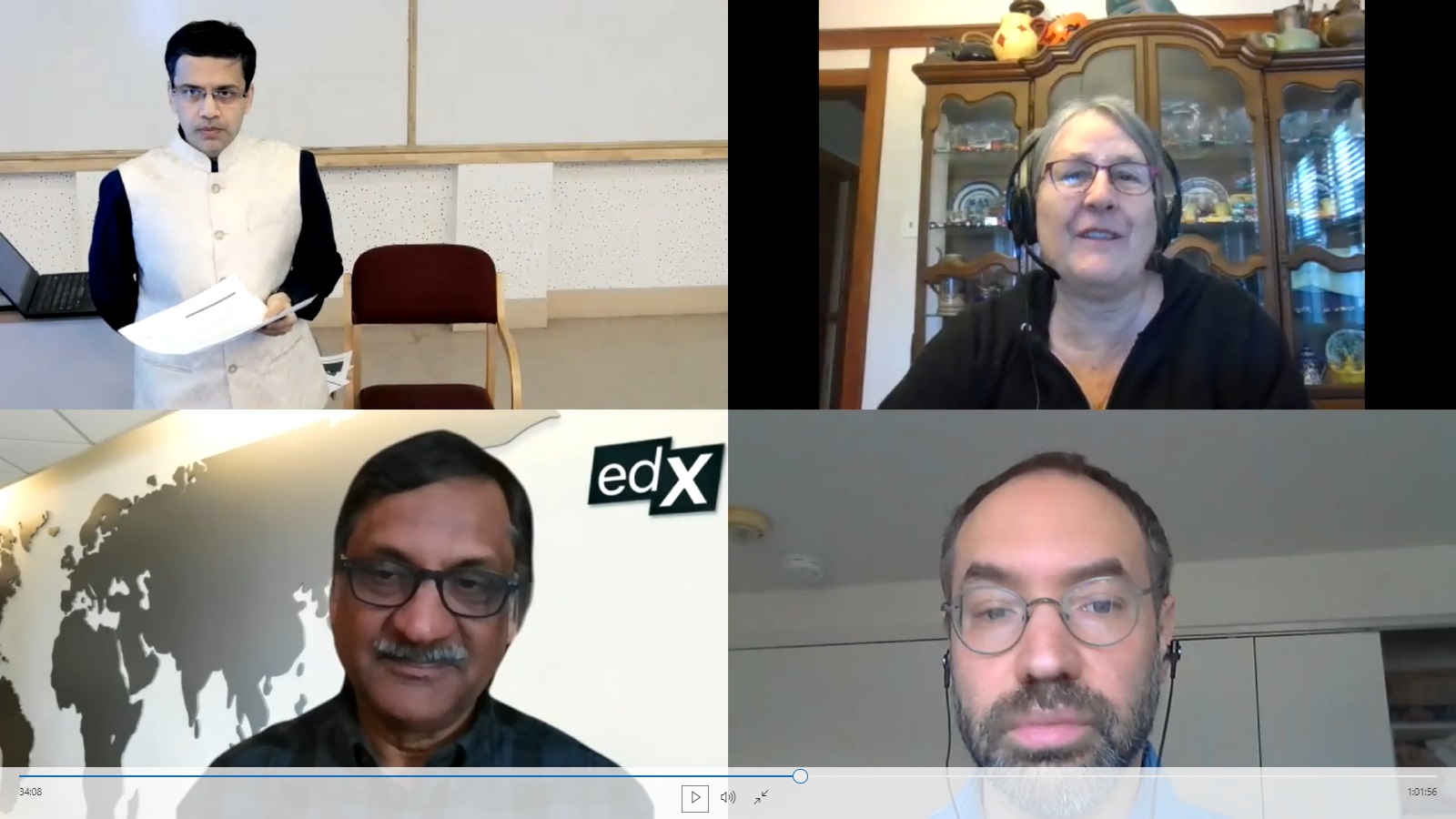IIMB’s Centre for Teaching and Learning hosts first webinar in its ‘Samiksha’ series titled: ‘How will Learning in Higher Education be different in the Post-Covid/Vaccinated World?’ on March 12
16 March, 2021: The Centre for Teaching and Learning (CTL) at IIM Bangalore successfully concluded the first webinar in its ‘Samiksha’ series of webinars. The webinar was on the topic: ‘How will Learning in Higher Education be different in the Post-Covid/Vaccinated World?’ It was held in the form of an online panel discussion on March 12 (Friday), 2021 at 06:00 pm IST/07:30 am EST.
The hour-long session was moderated by Professor Sourav Mukherji, Chairperson, Centre for Teaching and Learning, and faculty in the Organizational Behavior & Human Resources Management area, IIMB. The panellists included Professor Karen Swan, Stukel Distinguished Professor of Educational Leadership at the University of Illinois Springfield, Professor Ryan Baker, Associate Professor at the University of Pennsylvania, and Director of the Penn Center for Learning Analytics, and Professor Anant Agarwal, CEO and Founder of edX, and Professor of Electrical Engineering and Computer Science at MIT, Cambridge, Massachusetts.
The discussion was enlightening with significant takeaways. It was stated that COVID-19 has accelerated the trends that existed already. There has been a sudden upsurge in enrolments for Massive Open Online Courses (MOOCs) and far more learners are familiar with adaptive learning systems, Zoom and other communication technology these days. We can take advantage of greater familiarity to deploy best practices in online teaching and learning.

Further, the discussion highlighted that COVID-19 has made educators and learners think about the relevance of what they are teaching and learning. This has led to wider acceptance of shorter and stackable learning programs leading to badges and certificates or even to a degree.
It was also discussed that online learning in the post-COVID world will be adaptive, personalized, self-paced and active, as against ‘one size fits all’ offline classes.
Explaining that remote teaching is not the same as online learning, Professor Karen Swan said, “We need to design more adaptive systems to create better learning experiences”.
Professor Ryan Baker pointed out that: “Good quality adaptive systems have well-designed content, interactive activities and data-based iterations using learning analytics to see what is working and what is not”.
Professor Anant Agarwal observed that the future of learning is blended or hybrid learning and added, ‘‘New normal is a good thing. Now is the moment for true transformation of education. Let’s make it happen”.
The speakers also had recommendations for the way ahead. They said, in the rush to move online, educators and colleges jumped to the first technology they found, resulting in bad pedagogy. They also adopted low quality systems which were non-adaptive, buggy and facilitated low quality instruction. Therefore, many students equate online learning to bad learning and are waiting to return to traditional learning. To fix this, we need to do formative and summative research on effectiveness, focus on the role of emotions and motivation in learning and conduct iterative refinements based on data.
There is a shift towards learning soft skills such as empathy and emotional intelligence, leading high-performance teams and communication skills in the post-Covid world.
There is an urgent need to train teachers on best practices of effective teaching.
To keep the students motivated and engaged in learning, teaching needs to be interspersed with interactive activities.
IIMB’s CTL, set up in January 2018, has been envisaged as a centre that understands worldwide best practices of teaching and learning and disseminates it to the faculty for increasing teaching effectiveness. It would aid in conducting orientation programmes and constructive career mentoring programmes for faculty to attain teaching excellence.
Please click here to access the recording of the webinar
